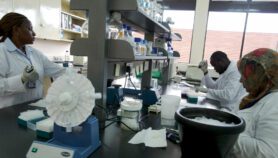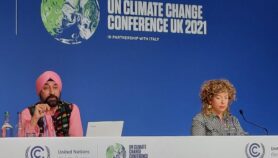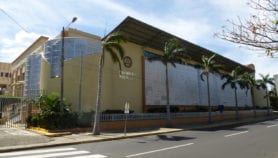By: Yojana Sharma
Send to a friend
The details you provide on this page will not be used to send unsolicited email, and will not be sold to a 3rd party. See privacy policy.
A seasoned science diplomacy expert has been appointed science and technology (S&T) advisor to US Secretary of State Hillary Clinton, in a job that links science with foreign policy.
William Colglazier, the former executive officer of the US National Academy of Sciences (NAS) and chief operating officer of the US National Research Council (NRC), took up his new post last month (25 July).
According to the academy, the S&T advisor "provides outreach to the US and international scientific community, helps to facilitate scientific cooperation between the US and other countries and helps to promote scientific and technological capacity building in developing countries and science-based policymaking internationally".
But it is Colglazier’s past role in building up international science networks that caught the attention of Washington insiders.
At the academy, the theoretical physicist managed relationships on science projects with a wide range of countries, including China and Indonesia.
He was also involved in building up the InterAcademy Panel, a network of national science academies set up to help each other advise the public on global issues.
Vaughan Turekian, chief international officer for the American Association for the Advancement of Science (AAAS), said the appointment was a "strong recognition that science and its applications is critical to almost every international challenge the US faces".
These include global issues such as climate change, agricultural productivity, food security and nuclear energy.
"Colglazier will have a very strong influence on how the process goes forward — [through building] networks of international scientists … to facilitate foreign policy objectives," Turekian said.
Colglazier said the new job brings him back to his "real love" — making international connections.
"Scientists can talk across cultures, even when governments don’t get along," he told SciDev.Net. "With a lot of the problems the world faces right now we have to collaborate and put our knowledge together to make progress on many of them."
He added that he would be working closely with US Agency for International Development (USAID) as he sees "a tremendous potential for increasing the role of applications of US S&T for activities related to international development".
But his appointment comes at a difficult time, with the State Department and USAID likely to see major budget cuts.
"We anticipate [the State Department] budget will not be increasing at the rate that it has been previously," Turekian said. The budget cuts may bring out the importance of international cooperation but they may also focus funding on home science issues, limiting international science interactions, he said.
"Budgets are going to be tighter here, at least for a couple of years, but I am still quite optimistic," Colglazier added.
Despite political differences, there seems to be a bi-partisan agreement on the importance of science and technology to the economy, and therefore science funding may be more protected than other areas, he said.
The role of S&T advisor to the Secretary of State, which has existed since 1999, is to advocate science-based policy at the State Department and to evaluate technical issues likely to affect foreign policy. Colglazier’s predecessor was geneticist Nina Fedoroff who is now the president of AAAS.













